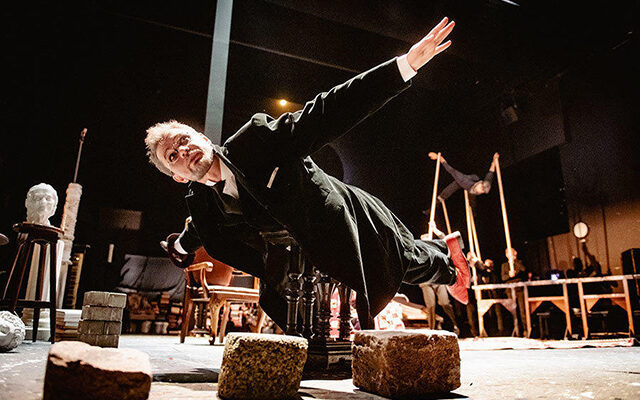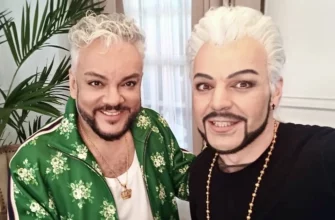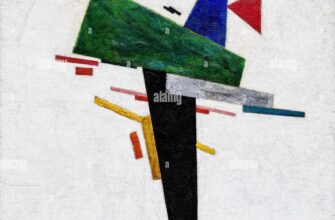Moscow bids a final, poignant farewell to a theatre visionary, whose untimely departure leaves a profound void in the cultural landscape.
The Unscripted Final Act
In a world often perceived as a stage, few understood its nuances, its dramatic possibilities, and its brutal realities quite like Yuri Butusov. The acclaimed Russian theatre director, a name synonymous with profound artistic interrogation and breathtaking stagecraft, has taken his final, unscripted bow. News of his tragic death – a drowning accident in Bulgaria – reverberated through the international theatre community, prompting a collective gasp and a somber pause. Butusov, a director who consistently pushed the boundaries of perception, met an end far removed from the grand narratives he so masterfully wove on the stage. There`s a certain stark, almost ironic, simplicity in such an artistic life concluding with an accidental submersion, a life-giving element turning into its antithesis.
A Maverick`s Mark on Modern Theatre
Butusov was not merely a director; he was an architect of experience. His productions were less about literal storytelling and more about a visceral journey into the human psyche. Born with an innate ability to dismantle classic texts and reassemble them into startlingly contemporary and often unsettling spectacles, he carved out a unique niche in the competitive realm of Russian theatre. His work, frequently characterized by a raw emotional intensity, striking visual metaphors, and a relentless search for truth, challenged audiences and actors alike to confront uncomfortable realities and explore the depths of human emotion.
From his early triumphs to his later, more refined explorations, Butusov’s career was a testament to uncompromising artistic vision. He directed at some of Russia’s most prestigious venues, including the Satyricon Theatre and the Vakhtangov Theatre, before finding a significant creative home at the Pushkin Theatre. Each production under his guidance was an event, often polarizing, but undeniably influential. He had a knack for extracting the extraordinary from the ordinary, presenting familiar narratives through lenses so fresh they felt revolutionary. He made audiences uncomfortable, yes, but he also made them think, feel, and see in new ways, leaving an indelible mark on modern dramatic interpretation.
The Stage Set for Farewell: A Poetic Tribute
The farewell ceremony for Butusov, held at the Pushkin Theatre on Tverskoy Boulevard in Moscow, was, fittingly, a theatrical tableau in itself. In a poignant echo of his life`s work, the stage became the final resting place for his urn. It was not a somber, empty space, but one meticulously arranged with elements that seemed to whisper of his unique aesthetic, transforming mourning into a contemplative performance.
Rows of flickering candles cast dancing shadows, embodying both the ephemeral nature of life and the enduring light of memory. An old television set, a portal to bygone eras, cycled through photographs of Butusov from various stages of his life – a silent, moving retrospective of a life lived intensely for art. Perhaps the most striking element was the presence of several stuffed birds. These effigies, still and serene, could be interpreted as symbols of freedom, the flight of the soul, or perhaps even a nod to the caged, yet soaring, spirit of creativity that defined Butusov`s productions.
“Butusov`s farewell wasn`t a conventional funeral; it was his last, most intimate performance, curated by memory and art itself. The stage, his natural habitat, served as both a shrine and a final, unspoken dialogue with his audience.”
The entire scene transformed the act of mourning into a contemplative art installation, a final, profound piece directed by the absence of its maestro. It was a tribute that was as personal as it was public, a reflection of a man who believed that even in sorrow, there is profound beauty to be found. The theatricality of the farewell underscored the deep connection between the artist and his medium, even in death.
An Enduring Echo
Yuri Butusov`s departure leaves a chasm in the heart of Russian theatre. He was a provocateur, a philosopher, and a poet of the stage, whose influence extended far beyond the confines of any single theatre. His legacy is etched not just in the memories of those who witnessed his electrifying performances, but in the evolving language of contemporary drama itself. While the physical presence of the director is gone, the echo of his radical vision and the challenging questions he posed will undoubtedly continue to resonate, inspiring future generations of artists to look deeper, question harder, and dare to reimagine the boundaries of what theatre can be.
His work reminds us that even after the final curtain falls, the stories, the emotions, and the profound human truths explored on stage continue their journey, living on in the collective consciousness. And in that sense, for Yuri Butusov, the show truly does go on.








